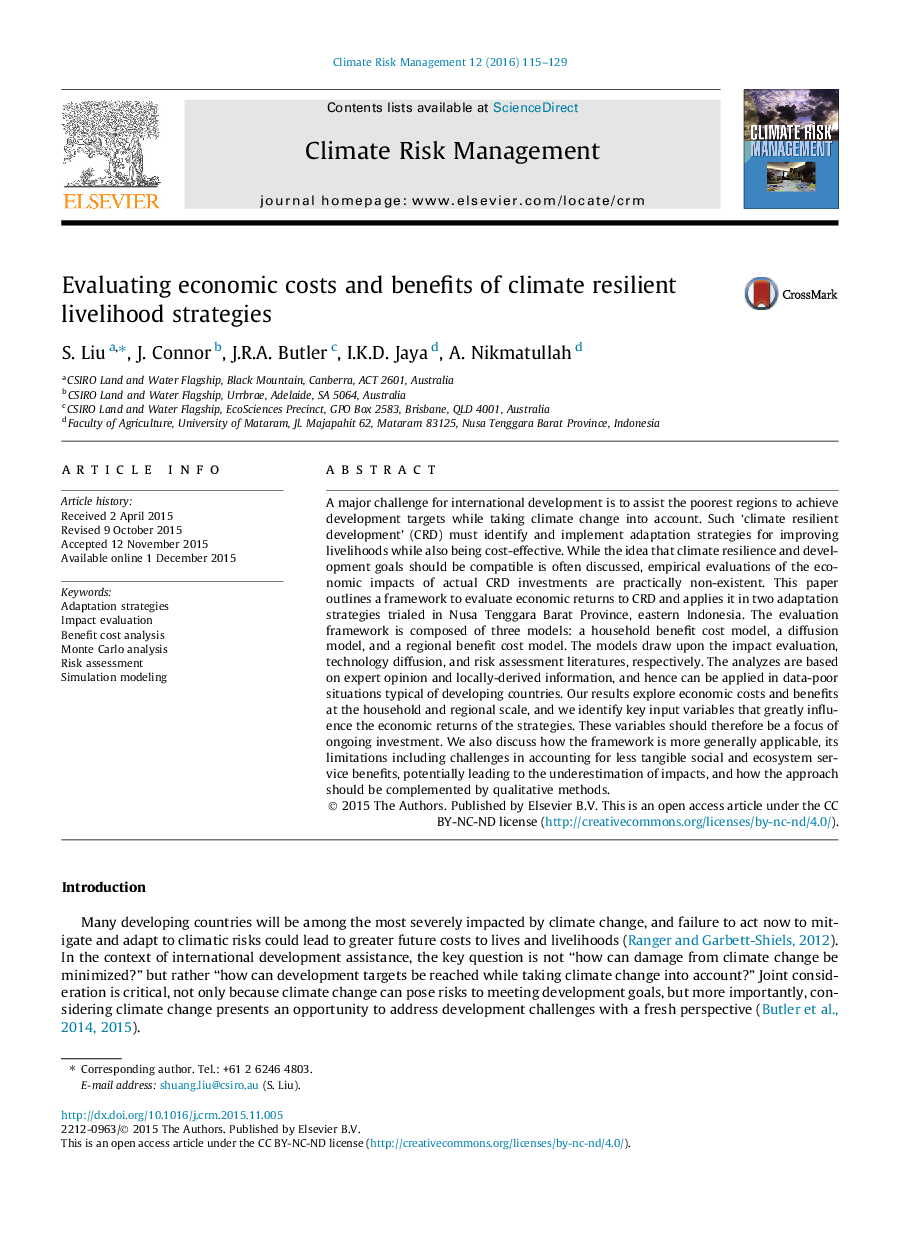| کد مقاله | کد نشریه | سال انتشار | مقاله انگلیسی | نسخه تمام متن |
|---|---|---|---|---|
| 1051199 | 1484880 | 2016 | 15 صفحه PDF | دانلود رایگان |
• Investment in climate resilient development (CRD) has to be cost-effective.
• Yet little has been done to evaluate economic return and uncertainty of CRD investment.
• We fill this gap by proposing an evaluation framework.
• We also apply the framework to two cases of CRD investment in Indonesia.
A major challenge for international development is to assist the poorest regions to achieve development targets while taking climate change into account. Such ‘climate resilient development’ (CRD) must identify and implement adaptation strategies for improving livelihoods while also being cost-effective. While the idea that climate resilience and development goals should be compatible is often discussed, empirical evaluations of the economic impacts of actual CRD investments are practically non-existent. This paper outlines a framework to evaluate economic returns to CRD and applies it in two adaptation strategies trialed in Nusa Tenggara Barat Province, eastern Indonesia. The evaluation framework is composed of three models: a household benefit cost model, a diffusion model, and a regional benefit cost model. The models draw upon the impact evaluation, technology diffusion, and risk assessment literatures, respectively. The analyzes are based on expert opinion and locally-derived information, and hence can be applied in data-poor situations typical of developing countries. Our results explore economic costs and benefits at the household and regional scale, and we identify key input variables that greatly influence the economic returns of the strategies. These variables should therefore be a focus of ongoing investment. We also discuss how the framework is more generally applicable, its limitations including challenges in accounting for less tangible social and ecosystem service benefits, potentially leading to the underestimation of impacts, and how the approach should be complemented by qualitative methods.
Journal: Climate Risk Management - Volume 12, 2016, Pages 115–129
